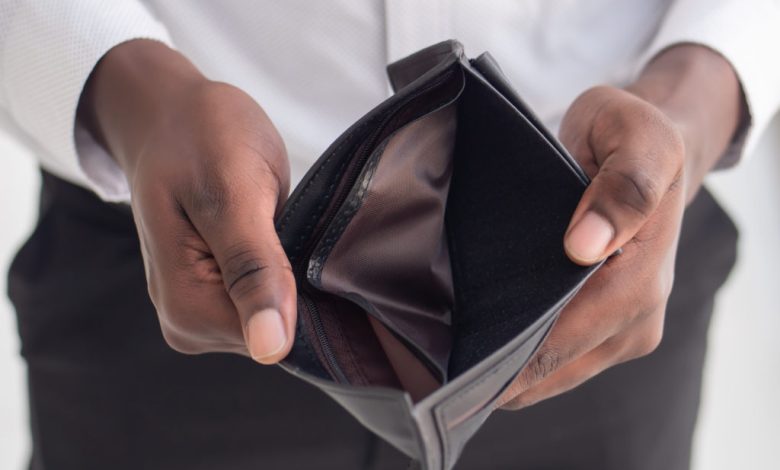
Nigeria grapples with a surge in citizens resorting to high-cost emergency loans as the nation’s economic challenges exacerbate poverty levels, prompting fears of a looming consumer debt crisis.
Samuel, the owner of a Lagos-based dry cleaning company, expressed the growing reliance on expensive loans due to economic constraints.
Reluctant to divulge his full name due to societal stigma around borrowing, Samuel revealed his predicament of managing loans from multiple fintech companies, bearing interest rates as high as 40%.
Struggling with the tripling cost of petrol following President Bola Tinubu’s subsidy removal, Samuel felt compelled to borrow, facing the cycle of repaying one loan with another.
Recent economic indicators underscore the financial strain on ordinary Nigerians. Skyrocketing food prices, up by 31.5% compared to last year, and a staggering 117% year-on-year rise in bus fares in cities reflect the mounting pressures.
The depreciation of the naira, intensifying import-driven costs, contributed to a record-high inflation rate of 27.3% in October, marking the country’s highest inflation in two decades.
This year, the World Bank’s report highlighted that persistent inflation pushed an additional 4 million Nigerians into poverty.
Even before this surge, government statistics indicated that around 63% of the population, approximately 133 million people, were already living in multidimensional poverty, fostering an environment ripe for lenders to exploit.
The proliferation of licensed online lenders in Nigeria has soared, with nearly 200 such entities identified by the Federal Competition and Consumer Protection Commission and a suspected number operating illegally.
Notably, leading market apps like OKash and Palmcredit have garnered over 5 million downloads, indicating the widespread use of these platforms amid growing financial challenges among citizens.
